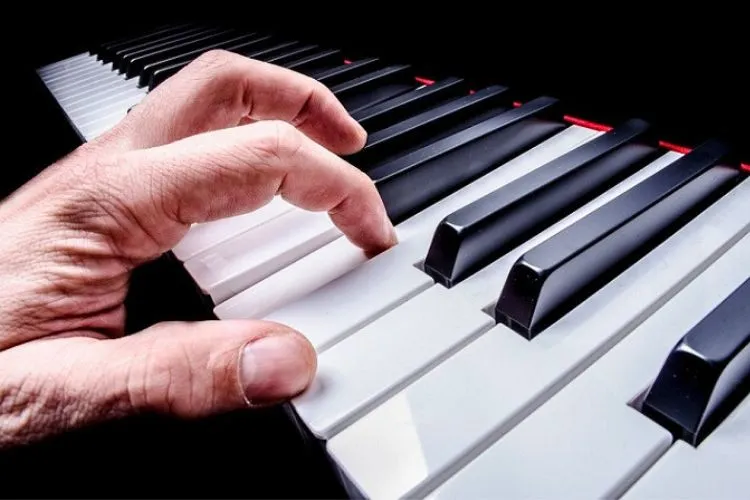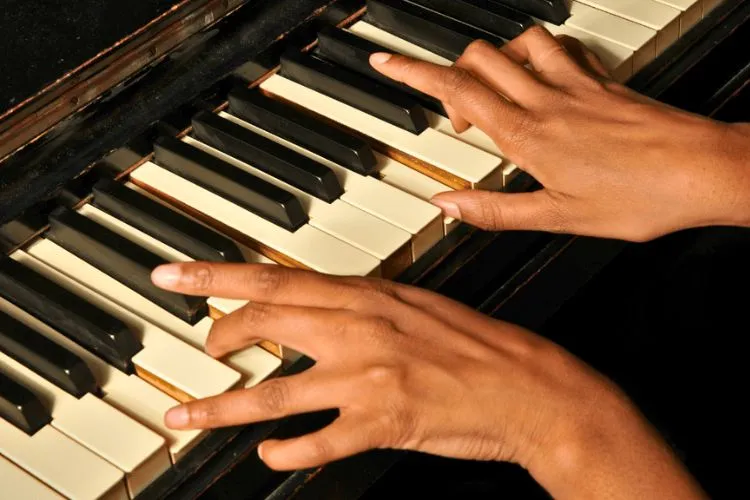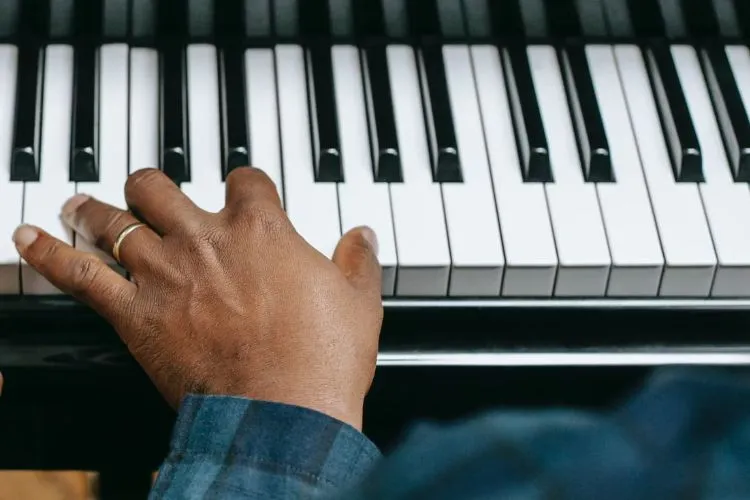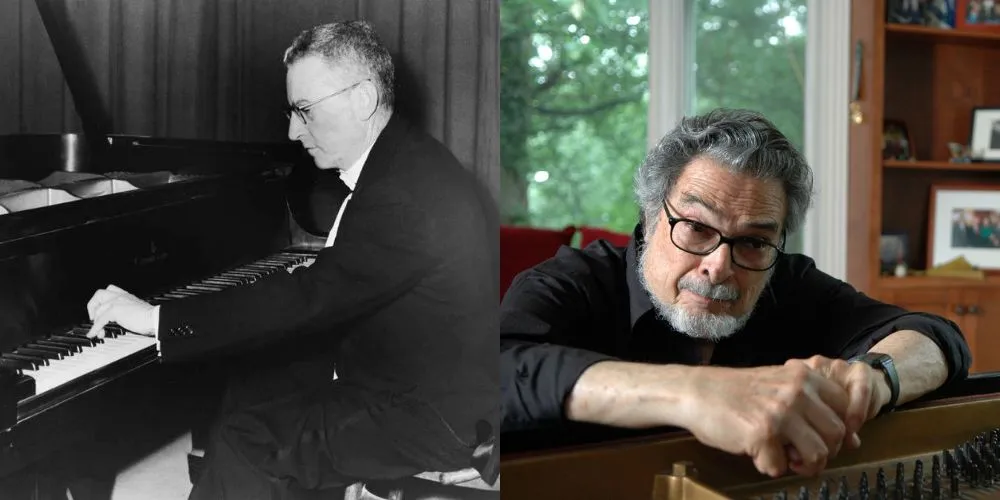Playing the piano involves a level of dexterity and coordination that can pose unique challenges for left-handed individuals. But the question remains: does being left handed hinder piano playing?
In this article, we will explore whether being left-handed hinders piano playing and how left-handed pianists can overcome potential obstacles to excel in their craft.

Contents
🎶Does Being Left Handed Hinder Piano Playing?
Left-handedness is a relatively common trait among musicians, including pianists. Approximately 10% of the population is left-handed, and many of them pursue musical instruments like the piano.
However, when it comes to piano playing, being left-handed can present certain difficulties. One of the main challenges faced by left-handed pianists is hand placement.
Traditionally, piano technique emphasizes the dominant right hand playing melody and the non-dominant left hand providing accompaniment.
For left-handed individuals, this conventional hand placement may feel counterintuitive and require a significant adjustment in playing style.
🎶The Impact of Left-Handedness on Piano Technique
Left-handedness can affect the development of piano technique in several ways. Firstly, finger coordination may be more challenging for left-handed pianists.

With the dominant hand being the non-dominant one for left-handed individuals, executing complex finger movements can require additional practice and focus.
Additionally, hand positioning may pose difficulties for left-handed pianists. The natural hand curvature and positioning that may come easily to right-handed players might feel awkward and unnatural for left-handers.
This can affect the overall control and precision of left-handed players.
🎶Strategies for Left-Handed Piano Playing
Although being left-handed may present challenges in piano playing, there are effective strategies that can help left-handed pianists overcome these obstacles and develop their skills:

Embrace individuality: Left-handed pianists should embrace their uniqueness and see it as an opportunity for creative exploration. By approaching piano playing with an open mind, left-handed individuals can discover innovative techniques that work best for them.
Focus on coordination exercises: Regular practice of exercises targeting hand independence and coordination can greatly benefit left-handed pianists.
By focusing on strengthening the weaker hand and improving finger agility, left-handed players can overcome the challenges of unevenness and achieve greater balance in their playing.
Seek guidance and adapt techniques: Working with a knowledgeable piano teacher or coach can be immensely helpful for left-handed pianists. An experienced instructor can guide them in modifying traditional hand positions and techniques to suit their individual needs.
By adapting techniques to match their left-handedness, pianists can enhance their playing efficiency and comfort.
🎶Famous Left-Handed Pianists and Their Accomplishments
recognition in the world of classical music. Their accomplishments serve as a testament to the fact that being left-handed does not inherently hinder piano playing. Some notable left-handed pianists include:

- Paul Wittgenstein: Known for his determination, Wittgenstein lost his right arm during World War I. Undeterred by his disability, he commissioned numerous piano compositions specifically for the left hand. His legacy continues to inspire both right-handed and left-handed pianists alike.
- Leon Fleisher: Initially a two-handed pianist, Fleisher developed focal dystonia in his right hand, rendering it partially paralyzed. He overcame this challenge by dedicating himself to the repertoire for left-hand alone and became a renowned interpreter of such works.
🎶frequently asked question (FAQs)
Left-handed individuals have the ability to play the piano with their dominant hand, but traditional piano technique encourages the non-dominant hand to handle the accompanying role. However, left-handed pianists can adapt their technique to play with their dominant hand if they find it more natural and comfortable.
Yes, left-handed pianists may benefit from modifying their approach to piano technique. Making adjustments to hand positioning, finger placement, and overall technique can help left-handed individuals achieve greater control and efficiency in their playing.
While left-handedness may present initial challenges, being left-handed can also offer certain advantages in piano playing. Some left-handed pianists have a unique perspective and a different approach to musical interpretation, which can bring a fresh and distinct style to their performances.
With dedication, practice, and proper technique, left-handed pianists can achieve the same level of proficiency and musicality as their right-handed counterparts. It may require extra effort, but ultimately, left-handedness should not hinder piano playing abilities.
Conclusion:
Being left-handed does not inherently hinder piano playing. With perseverance, adaptation of techniques, and regular practice, left-handed pianists can overcome the challenges they may face and achieve greatness in their musical journey.
Embrace your uniqueness and let it propel you to explore new creative possibilities on the piano.
